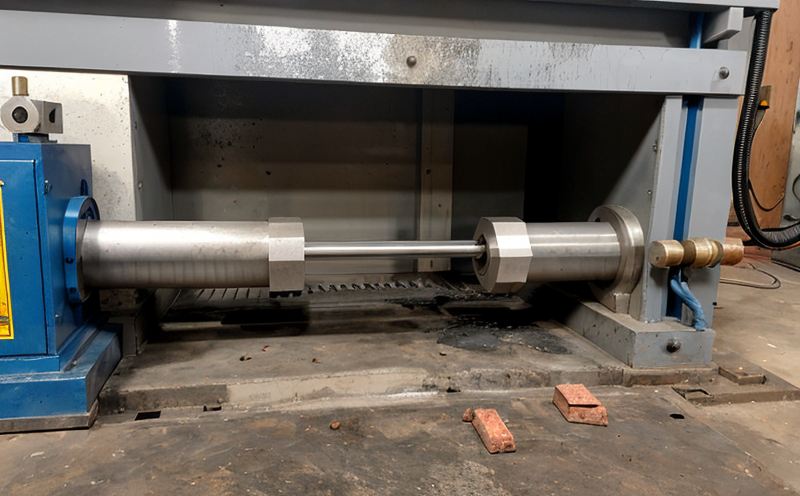ASTM D624 Tear Resistance Testing of Rubber
The ASTM D624 standard is a widely recognized method used to determine the tear resistance of vulcanized rubber and thermoplastic elastomers. This service plays a critical role in ensuring quality control, compliance with international standards, and reliability across various industries. The test assesses the material's ability to resist tearing under specific conditions.
The ASTM D624 method involves subjecting a pre-notched specimen of rubber to controlled stress until it fails. Specimens are cut from the test materials according to precise dimensions outlined in the standard. After notching, they undergo testing on specialized tear testers that can apply tension at defined rates.
Testing parameters include the rate of loading, temperature, and humidity conditions which are critical for accurate results. The tester records the force required to cause the specimen to fail, thereby calculating the tear resistance. This method is essential in industries such as automotive, footwear, construction, and aerospace where rubber components undergo significant stress.
Quality managers rely on this testing service to ensure that their products meet stringent international standards like ISO 18745:2016, which harmonizes with ASTM D624. Compliance officers use the results of these tests to avoid non-compliance issues and maintain a good reputation in the market.
| Parameter | Description |
|---|---|
| Notch type | A specified V-notch is created on the specimen to simulate real-world stress conditions. |
| Loading rate | The speed at which force is applied during testing, typically 50 mm/min ± 2 mm/min. |
| Temperature and humidity | The conditions under which the test is conducted to simulate real-world usage scenarios. |
The ASTM D624 method ensures that rubber materials are robust enough for critical applications. For instance, in automotive components like tires and hoses, tear resistance can mean the difference between safety and failure under stress. In footwear manufacturing, it guarantees durability of soles against wear and tear.
- The test is crucial for ensuring product longevity.
- It helps in identifying weak spots in rubber formulations early in development.
- Avoids costly recalls by catching quality issues at the source.
- Ensures that products meet regulatory and safety requirements.
Quality and Reliability Assurance
The ASTM D624 testing service is integral to maintaining high standards of quality and reliability in rubber materials. By adhering strictly to the methodology outlined in the standard, labs can ensure consistent results that are repeatable and comparable.
This consistency allows for better process control within manufacturing plants. Quality managers use the data from these tests to make informed decisions about product design and material selection. Compliance officers leverage this information to demonstrate adherence to international standards during audits and certification processes.
The service also supports research and development by providing accurate baseline data against which new materials or formulations can be compared. This ensures that innovations in rubber technology are not only novel but also robust enough for real-world applications.
International Acceptance and Recognition
The ASTM D624 tear resistance test is internationally recognized, ensuring its applicability across borders. Many countries have adopted this standard as it provides a uniform method of testing that can be universally understood.
Affirmation of compliance with such standards enhances the reputation and marketability of products. It also facilitates easier entry into international markets where adherence to global standards is often a prerequisite for trade.
Recognized by leading authorities in quality assurance, this service adds credibility to product offerings. This recognition is particularly valuable when dealing with regulatory bodies or securing contracts from multinational corporations.
Use Cases and Application Examples
| Industry Sector | Application Example |
|---|---|
| Aerospace | Testing tear resistance in rubber seals and gaskets. |
| Automotive | Evaluating tire sidewalls and hose assemblies. |
| Construction | Assessing tear resistance in rubberized roofing membranes. |
- The test is particularly relevant for industries where rubber components are exposed to harsh environmental conditions or undergo significant mechanical stress.
- It ensures that materials used in these sectors can withstand the rigors of their intended applications without failure.





